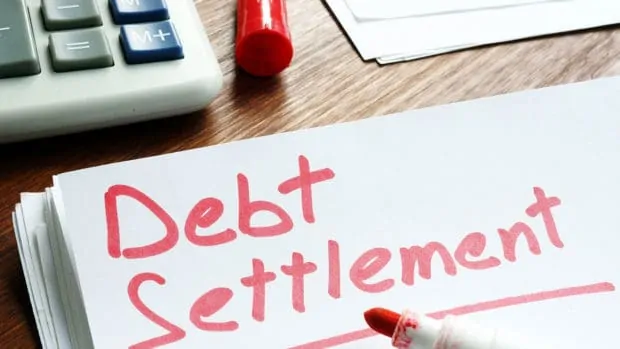Question: Can you tell me how you’re supposed to get a debt consolidation loan to pay off debt faster when nobody will approve you because of your debt-to-income ratio? Even though I have an excellent payment history — with the exception of one medical bill I just found out I owed on my credit report – I can’t find a lender that will approve me.
Do you know of any financial institutions willing to offer these loans with more flexible terms? I’m even willing to just have direct deposits withdrawn every month so they’d never have to worry about payments. I look forward to hearing from you.
— Sylvia in Texas
[On-screen text] Can I Get Turned Down For A Debt Consolidation Loan Because I Have Too Much Debt?
[Debt.com founder Howard Dvorkin]A reader wants to get rid of her debt but she doesn’t know how. You hear a lot of noise these days about debt consolidation loans. I even heard a radio commercial the other day that promised to wipe out all your debts with “one simple and easy” loan. It was a “secret the credit card companies don’t want you to know.” Trust me, I’ve been in this business for more than two decades. There are no secrets.
Debt consolidation loans can be great in certain circumstances, but if you have too much debt, you might not be able to get one at a beneficial interest rate. Thankfully, there are other options, and they may even work out to be better.
Shedding pounds and debt are a lot alike. A personalized plan works best. For dieting, that might mean consulting your doctor or even a nutritionist.
For debt, it’s even easier: You can call an expert.
Debt.com can introduce you to one who might be able to help you – and that might include a debt consolidation loan, but it might not.
Howard Dvorkin answers…
It seems like a weird thing to say, but it’s true: If you have too much debt, you might not be able to get a debt consolidation loan. Thankfully, you have other options, and they may even be better ones.
First, this is the Catch-22 of consolidation loans
Debt consolidation loans are really just an unsecured personal loan with a specific mission. You’re going to a lender to get a loan that will pay off many debts. The funds from the loan are used to pay off your balances, leaving only the loan to repay. So instead of paying, say, three credit card companies a very high interest rate, you’re paying one lower fixed interest rate to just one lender.
It’s a time-honored way to save money while also avoiding the embarrassment (and penalties) of forgetting to make a payment on one of your many bills. Then again, you’re still dealing with banks and credit unions, and they both operate under strict rules. These rules are why people get turned down for consolidation.
Reason no. 1 that you can get rejected: Bad credit
If you have bad credit — and many people who owe huge debts often do — then you can be turned down for a debt consolidation loan. Bad credit is the primary reason people don’t get approved.
Why? Because your bank or credit union can’t be sure you’ll ever have enough money to pay them back. Many times, even if you get a debt consolidation loan with bad credit, the interest rate is so high, it cuts deeply into what you were going to save in the first place. I’ll define “bad credit” here as a FICO score under 500.
Reason no. 2 that you can get rejected: You have too much debt
This is a lesser known reason for getting rejected. When you apply for any loan, one thing the lender will check is your debt-to-income ratio (DTI). This measures the amount of debt you have relative to your income. To figure out your DTI, you add up your total monthly debt payments by your total income. Debt.com has a free DTI calculator that will walk you through it.
When a lender calculates your DTI for loan approval, they add the new loan payments in. Your debt-to-income ratio must be below a certain percentage to get approved. For a consolidation loan, they also run the calculation with the debts you want to pay off taken out. Most lenders want your DTI to be below 41 percent with the new payments factored in. In your case, it sounds like your debt-to-income ratio will still be too high even once your credit cards are paid off. That’s why you’ve been rejected.
Some online lenders are willing to approve people with a debt-to-income ratio of up to 45 percent. So, if you applied with a traditional bank or credit union and got rejected, then you may want to try an online lender, such as Credible. You may have more success depending on exactly how much debt you have.
Find the right loan to consolidate your debt.
Other options if you have too much debt to get approved
First, I strongly recommend credit counseling. Essentially, you’re consulting another expert, but this one will drill down on your financial situation in detail. (I can only scratch the surface here.) Debt.com can introduce you to a certified counselor at a nonprofit credit counseling agency for a free debt analysis.
From there, you may be eligible for a debt management program. This is what’s called an “assisted debt repayment plan.” Why? Because if your debt is caused by credit cards, your credit card issuers actually help you. They agree to reduce or eliminate interest charges, stopping penalties and late fees, and delay collections.
Taken together, these benefits can reduce your monthly payment by up to 30 to 50 percent. Bottom line, Sylvia: Don’t fixate on debt consolidation loans. If you’re still not sure which option is right for you, call and Debt.com will match you with the right solution, based on your needs, credit and budget.








